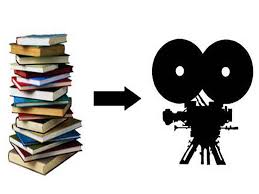—From Cathy
 The Association of Writers and Writing Programs (AWP) Conference happened a little over a month ago (February 8-11 in Washington, DC), and in addition to all the books, journals, and souvenirs I dragged home, I also took a ton of notes during the sessions and readings, and finally dug them out. Here are some of the best quotes, overheard remarks, and tips, most of them without attribution. Some are true gems, so please enjoy these takeaways from some great conversations about writing and publishing.
The Association of Writers and Writing Programs (AWP) Conference happened a little over a month ago (February 8-11 in Washington, DC), and in addition to all the books, journals, and souvenirs I dragged home, I also took a ton of notes during the sessions and readings, and finally dug them out. Here are some of the best quotes, overheard remarks, and tips, most of them without attribution. Some are true gems, so please enjoy these takeaways from some great conversations about writing and publishing.
Turning Flash Pieces into a Novel, Novella, or Memoir
(Panelists: Abigail Beckel, Kelcey Parker Ervick, Lex Williford, Tyrese Coleman, Tara Laskowski)
“Prioritize clarity over adherence to the form.”
“Flash eliminates all the boring parts.”
Try writing flash stories and connecting them together for a novella or novel. This retains the strength of voice and character, and the overall tension of the book will join them and progress the story forward. (Voldemort is the big tension, little problems along the way are the smaller ones.) Tara Laskowski recommends The Desert Places as a great example of a hybrid text novel.
We All Have to Start Somewhere: How Bad Writing Gets Good
(Some raw language in this one. Oh, those bawdy writers.)
(Panelists: Melissa Stein, Richard Bausch, Tayari Jones, Natalie Diaz, Nick Flynn)
“Fifty Shades of Gray reads like somebody shat it out.”
“Give yourself the freedom to suck.”
“You cannot fuck it up. You can’t ruin it. You can only make it necessary to do it again.”
“Your writing isn’t bad, it’s just off. Like a sweater buttoned the wrong way. Unbutton it. Rebutton it. It’s a perfectly fine sweater.”
“Always read your work aloud.”
Recommended book: The Artist’s Way by Julia Cameron
Distinguished Editors Panel, featuring Nan Graham, Daniel Halpern, Jonathan Galassi, and Erroll McDonald
“The author/editor relationship is like an arranged marriage.”
“Voice and territory, more than structure, are the criteria by which I judge a book. Structure can be fixed. But you can’t fix writing that’s not fresh, that’s been done before.”
You know a story is done when others you show it to disagree about what needs to be changed. If they’re all telling you a character isn’t strong enough or the pacing is slow, for example, believe them and fix the problems. But if they’re all telling you something different, it’s probably finished.
A Novelist’s Job: The Realities, Joys, and Challenges
(Panelists: Miranda Beverly-Whittemore, Nicole Dennis-Benn, Julia Fierro, Celeste Ng)
Being busy, working, having a job, makes you more productive in your writing.
Do not think about writing a successful book. Just “be true to the work.”
Do social media in an authentic way. Use it as a place of community. If you feed into that world, it will work for you too. Help other writers (with reviews, promotion, comments, etc.) and they’ll help you.
On creating more spaces/avenues for writing to exist: “We’re all fighting hard for a piece of pie, when actually there is no pie. Your job is not to get your piece, but to make more pie.” –Celeste Ng
Also try to post enough to stay connected with people, but don’t make it seem like a sales pitch. Tweet an overheard conversation. Do a daily task, like Ellis Avery who posts a haiku every day. Another writer posts dog pictures (often with a link to his book) every day.
Loose, Faithful, and Literal: Adaptation from Novel to Screen
(Panelists: Christine Vachon, Neal Gabler, Magdalene Brandeis, Melissa Bank)
Screenplays make you focus on the narrative—how to bring character and plot into what can be seen and shown.
 “In a movie, action is always character.”
“In a movie, action is always character.”
One panelist says she tells her students not to call themselves “filmmakers” but “storytellers.” Because there are so many different forms (like streaming services) today to bring stories to life.
A movie is a “jolt,” whereas a TV show is a life. Characters grow incrementally, and that’s a “novelistic sense of life in real time.”
NO screenplay should be more than 110 pages!
By the time the Q&A rolled around, it was apparent everyone listening to this panel was there to ask the same question: How do you get your screenplay seen? Sadly, the answers were pretty vague.
“If you’ve written ‘trash’ like The Godfather, you may be lucky enough that someone will turn it into gold.” —Neal Gabler
Write a two-page summary of why this should be made into a film. Send it to a producer you think would be interested. A 20-something intern will likely read it, and will pass it along (or not) to the producer. Melissa Bank, author of Girls Guide to Hunting & Fishing, sent a story to Zoetrope. They put her in touch with Coppola.
Ask yourself who’s your dream director? Actress? Work on those connections. “I wrote this for you and here’s why.”
“Great works rise to the top. Books come to our attention through coverage, reviews, agencies, recommendations. It just happens.”
Um, yeah. But how do you get your screenplay seen?
“It’s difficult to get things read, and to work with and without an agent. The only sure way to do it is to make the film yourself.”
Kirkus Reviews was recommended as the primary route for movie companies to see synopses of stories that might intrigue them.
Foremothers: Southern Women Writers
(Panelists: Charlotte Holmes, Cary Holladay, Lisa Parker, Lisa Roney, Adrienne Su)
A panelist talked about her mother, whose family moved from the south when she was young. The kids in her school couldn’t understand her because of her southern accent, so she stopped talking—for a year. She read books out loud, practicing in her bedroom, until she lost her accent.
Read Katherine Stripling Beyer, a writer similar to Lee Smith.
One panelist recalled how Lee Smith studied at the Sorbonne and loved to let people there hear her talk. She could see them taking her IQ down about 20 or 30 points as she spoke. Then she would say something that would “take them out at the knees.”
Live outside the world of your past, but find your background. You have to get away from it to look back and find your voice.
Recommended books:
The Dollmaker, Harriette Arnow
Killers of the Dream and Strange Fruit, Lillian Smith
Trampoline, Robert Gipe, on duality of Appalachia
Panel: Conversation with Ann Patchett and Emma Straub

“Don’t think, what type of book should I write? Writing is most successful when it sounds the most like you. When the voice is right, it feels alive.” –Straub
“Fiction is a way we can play out an alternate universe. Like in It’s a Wonderful Life. If I’d taken a left instead of a right 20 years ago…” –Patchett
Book lovers want something smart and funny. Where’d You Go, Bernadette?, Cold Comfort Farm, The Vacationers…things they feel proud for having read. Makes them feel great. –Patchett
Ann Patchett talked about her bookstore, Parnassus Books, in Nashville. Her upcoming picks for best reads:
Lincoln at the Bardo, George Saunders
Chemistry, Weike Wang
Do Not Become Alarmed, Maile Meloy
Sing, Unburied, Sing —“a Beloved for this generation,” by Jesmyn Ward
The Leavers, “depressing but great,” by Lisa Ko
Patchett was asked about the new administration and one thing she’d advise writers and book lovers to do to resist and to make a difference:
“Open a bookstore. People don’t want to be alone. You can’t go to J Crew and come together. At a bookstore, everybody is welcome. And it feels wonderful to have community right now.”
To the Finish Line: Completing and Promoting the Novel
(Panelists: Melissa X. Golebiowski , Cynthia Bond, J. Ryan Stradal , Katie Freeman, Carmiel Banasky)
“My goal is to get 50 rejections a year.”
Check out the Hot Dish reading series in LA. Maybe start something similar in your town?
The Ten-Year Novel:
On why some novels take so long to write, and what writers can do to sustain themselves. (Panelists: Tova Mirvis, Rachel Cantor, Rachel Kadish, Joanna Rakoff, Sari Wilson)
“It’s the persistence that makes you a writer.”
“My sense is that publishing has changed to the point that, a few years ago, an agent might say this book isn’t quite where I want it to be, but I’ll work with the author a year or so and get it there. No more. Books today need to be as finished and polished as possible before they’re ever sent out.”
 Such Mean Stories: Women Writers Get Gritty:
Such Mean Stories: Women Writers Get Gritty:
Women writers of the south talk about “grit lit.” (Panelists: Luanne Smith, Jayne Anne Phillips, Vicki Hendricks, Stephanie Powell Watts, Jill McCorkle)
“If we think about the reader as we’re writing, we’re putting blinders on ourselves as writers.” –Jayne Anne Phillips
“There is true fear about the power of women.” –Watts
“In fiction, I love to have that alter ego character who rises up and defends herself.” –Jill McCorkle

“I’ve probably learned more from my characters than they’ve ever gotten from me.” –Jill McCorkle
On unlikeable characters:
By giving readers the history of unlikeable characters early on, they reveal a life, and it makes the characters human. So even if it doesn’t excuse their actions, it helps readers understand why they are the way they are.
Recommended story: “Lechery” by Jayne Anne Phillips
Recommended book: No One Is Coming to Save Us, Stephanie Powell Watts, E-Weekly Most Anticipated Book.
Next year’s AWP Conference is in Tampa. Go if you possibly can. You won’t regret it!

Cathy, your insights are always so right-on and so valuable. Thank you!!!!
Thank you so much! Happy to help.
Glad to do it, Ruth. I would never have remembered so many things if I hadn’t taken notes. But AWP is going to release some podcasts of sessions soon: https://www.awpwriter.org/magazine_media/podcast_series
Thank you so much for writing this detailed recap, Cathy. It’s the next best thin to being there!